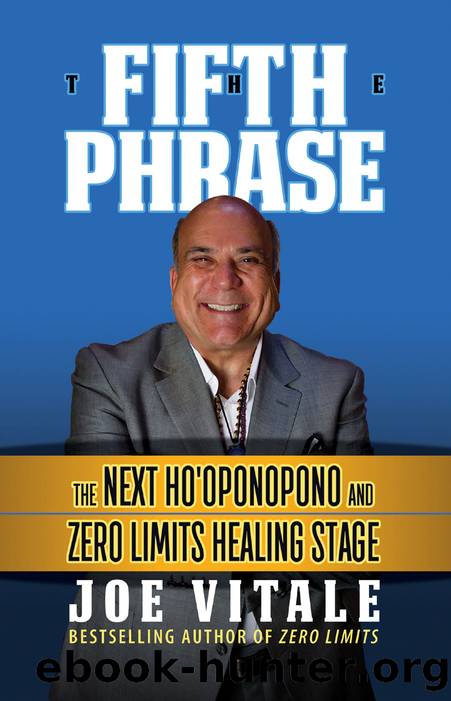The Fifth Phrase by Joe Vitale

Author:Joe Vitale [Joe Vitale]
Language: eng
Format: epub
Letâs go through the four stages in more detail.
I would say the vast majority of people are born into stage one and stay there. We donât come into life as a blank slate. Hoâoponopono philosophy and psychology, and the ancient cultural customs, teach that you come in with traits that youâre preprogrammed to have because of limitations inherited from your family. The science of epigenetics says that what your great grandparents may have had in their bodies may have skipped a generation or two and may show up in your body. That doesnât mean youâre destined to have these traits and you canât change them. It does mean that when youâre born, you donât come in as a blank slate.
Once I had a litter of nine cats. They all came from the same father and the same mother, but every single one had a different personality. How was that possible? They had to come in with some sort of programming. They had to come in with some sort of wiring that took place before I ever got there.
Weâre the same way. When weâre born, we are given life, but itâs given in a vessel that already has some programming. Most of that program is not abundance-oriented. It comes from what people went through beforehand, which was lack, scarcity, and survival: âHow do I get my next meal?â âHow do I get security?â âHow do I get a loved one so I can keep my lifeline going?â
When weâre born, weâre downloading information from people who were not Mr. and Mrs. Buddha; they were Mr. and Mrs. Limitations. They had their own baggage. They didnât know it, any more than anybody else before them knew it. Working on yourself was not as popular then as it is today. Today itâs more of an in thing to do self-work. Back then, not so much so.
Itâs easy to see why people would be victims. They come in programmed for lack, limitation, and scarcity, and they think the worldâs against them from the moment of birth. Then theyâre raised by parents who instill in them the ideas of survival and how to make it in the world, but empowermentâthatâs very rare.
Telltale signs of the first stage? You blame other people. If you say anybody else is responsible, you are raising your hand and saying, âI am a victim.â I donât care if you say itâs the president, the economy, the political system, your neighbor. Thatâs your telltale sign right there.
You want to leave victimhood. If youâre reading this book, you probably either have or are in the process of doing so. Itâs highly unlikely that a victim would invest in this book unless theyâd already moved the needle a little bit towards empowerment.
Now weâre in empowerment. How do you know youâre in empowerment? Youâre starting to state intentions; youâre starting to take actions; youâre starting to set goals; youâre starting to engage in more positive habits every day; youâre starting to use more positive psychology; youâre thinking good things about yourself and other people.
Download
This site does not store any files on its server. We only index and link to content provided by other sites. Please contact the content providers to delete copyright contents if any and email us, we'll remove relevant links or contents immediately.
Effortless by Greg McKeown(1184)
Beyond Order by Jordan B. Peterson;(1074)
Word Power Made Easy by Norman Lewis(1071)
How to Not Die Alone by Logan Ury(846)
Master of One by Jordan Raynor(814)
Chatter by Ethan Kross(810)
100 Things Successful People Do by Nigel Cumberland(809)
So Good They Can't Ignore You by Cal Newport(761)
Lives of the Stoics by Ryan Holiday & Stephen Hanselman(729)
The Art and Science of Results by Joe Vitale(717)
Napolean Hill Collection by Napoleon Hill(708)
Be Your Best Self by Mike Bayer(691)
Kinesic Magic by Donald Tyson(676)
Career Fear (and how to beat it) by Somi Arian(667)
Friday Forward by Robert Glazer(663)
The 7 Habits on the Go by Stephen R. Covey(651)
The Power of 100! by Shaun King(651)
The Practice Is the Path by Tias Little(635)
The Most Powerful You by Kathy Caprino(609)
